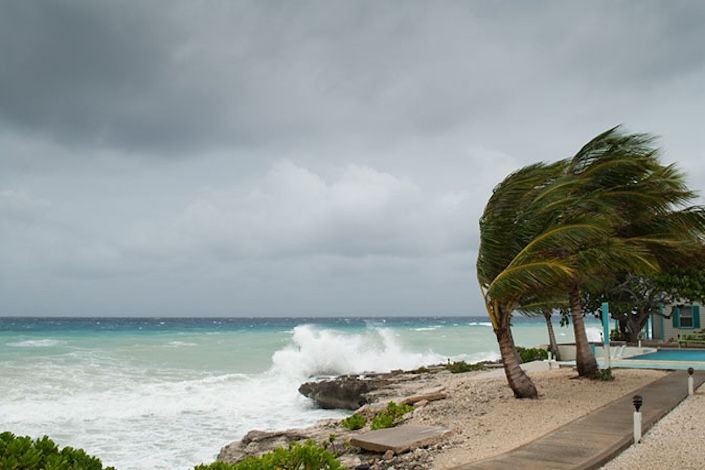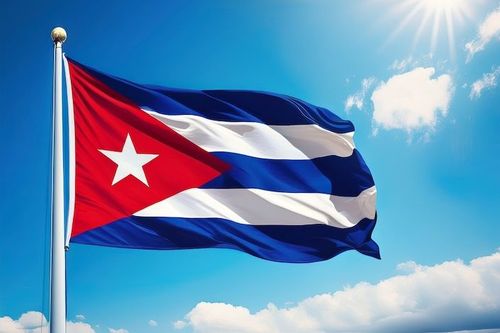Where travel agents earn, learn and save!
News / Caribbean tourism shows resilience with rapid recovery following hurricane Beryl’s impact
Tourism impact revealed through joint analysis by ForwardKeys and the Caribbean Hotel and Tourism Association

Hurricane Beryl was first identified as a tropical wave off the coast of Africa on June 26. It intensified into a tropical depression, and then tropical storm, before being classified as a Category 5 hurricane on June 30. The devastating storm hit Grenada on July 2 before moving towards Jamaica — having developed into a Category 4 hurricane — on July 3. The impact on tourism was substantial, as revealed by ForwardKeys´ comprehensive air travel data in a joint analysis with the Caribbean Hotel and Tourism Association.
Significant short-term drop in Caribbean bookings

Analysis of air tickets issued between 30th June and 23rd July for future travel to the Caribbean shows a -2% decline overall compared to the same period in 2023. Some individual destinations saw more pronounced falls, with tickets to the Bahamas down -7%, Grenada down -14% and Jamaica dropping -24%.
This is a dramatic turnaround from the fortnight immediately prior to the hurricane (16-29 June), which saw tickets to all Caribbean destinations +9% higher than the previous year. During that period, Jamaica recorded an +5% increase and Grenada an impressive +26% rise.

The U.S., which is the largest source market for the Caribbean, has shown encouraging signs of a swift recovery. Starting July 9, ticket sales from the U.S. to the region returned to year-on-year growth, recovering faster than the overall average.
This is particularly significant given that the U.S. initially saw a steeper decline than the Caribbean average from all international markets, with bookings down -36% year-on-year in the immediate aftermath of the hurricane.
However, the speed of the recovery is a highly encouraging sign of the resilience of the region’s tourism economy. The U.S. market, which is so critical for the Caribbean, is leading the way, while segments such as group travel and VFR are rebounding more strongly as humanitarian and essential travel pick up pace. While there was an immediate and severe hit to bookings, we are seeing a normalisation to 2023 levels across the region, which bodes well for the remainder of the season.
Grenada feels the impact but rebounds quickly
Focusing on Grenada, one of the hardest-hit islands, intra-Caribbean ticket sales fell -23% compared to 2023. From the U.S., Grenada’s top source market, bookings were down -18%, with key cities such as Boston (-19%), Miami (-18%) and New York (-15%) all seeing significant declines.
Family travel was the worst affected segment, plummeting -33%. Couples, who make up the largest share of visitors, recorded a -24% fall, while singles were down a more modest -2%.
Daily booking data reveals the dramatic impact of the hurricane, with tickets to Grenada from the U.S. dropping close to -100% down on 1st July. However, the market has shown impressive resilience, quickly bouncing back to normal booking levels.

Booking patterns have shifted, with last-minute trips to Grenada from the U.S. in July seeing a +51% increase in cancellations due to the hurricane disruption. However, cancellations for trips from August onwards were less severely impacted, rising by a more modest +6%.
Since the start of the recovery on 2nd July, the Business and VFR (visiting friends and relatives) segments are showing growth of +57% and +12% respectively — likely boosted in part by organised humanitarian aid and essential travel. Leisure travel remains -14% down, a steeper fall than the overall -11% decline in bookings.
Jamaica mirrors regional recovery trends
Bookings to Jamaica from elsewhere in the Caribbean have followed a similar pattern to Grenada and the region as a whole, with a swift recovery to 2023 levels suggesting the initial hurricane impact was short-lived, and traveller confidence was restored within a matter of days.












